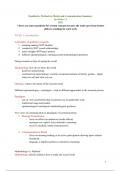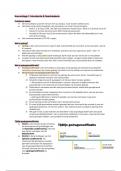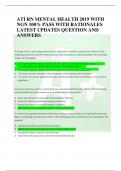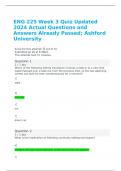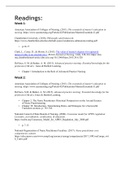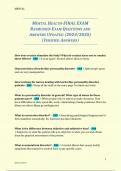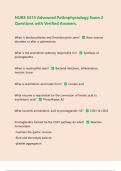Samenvatting
Qualitative Methods in Media and Communication Full Summary (8 weeks)-2nd year IBCoM course
This summary includes an in-depth summary of all 8 weeks worth of course material of Qualitative Methods a.k.a QMMC. The mix of notes from lecture slides and the course readings from various articles are provided for each week.
[Meer zien]
